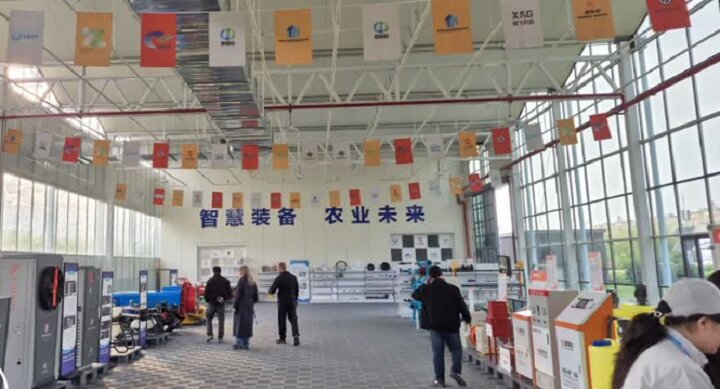Iran participation in Yangling Agricultural Hi-Tech Fair marks a significant moment for the nation’s agricultural sector. The 32nd China Yangling Agricultural Hi‑Tech Fair—also referred to as the “Yangling Exhibition”—is being held in the National Agriculture and Technology City in Yangling, Shaanxi Province, China, and features the latest in agri-technology, including agricultural robots and smart machinery.
What Iran is bringing to the show
Iran’s delegation includes the Deputy Minister of Agriculture, who in a specialised meeting of member states of the Shanghai Cooperation Organization (SCO) emphasised that modern agriculture and food-security efforts increasingly rely on the country’s scientific and research capacities. The Iranian representative pointed out that Iran’s agricultural production has risen from 30 million tons to more than 130 million tons over the past four decades — achieved without major expansion of cultivated land — which highlights the impact of technological input.
Iran’s showcased achievements include:
- Use of drones in agriculture for monitoring and spraying.
- Nationwide deployment of smart irrigation systems and subsurface drip irrigation.
- Application of nanotechnology in agriculture.
- Launch of a National Centre for Monitoring Agricultural Production Patterns.
Why this matters
The exhibition provides Iran both visibility and strategic opportunity. From a policy-perspective, participating in such a high-profile event sends a signal that Iran is committed to modernising its agricultural base via tech. For the audience reading with an Economy & Growth (EG) lens, this is relevant because agriculture remains a major part of many economies, especially in regions like Iran. Modernising agriculture touches on productivity, exports, food security, and even climate resilience.
At the same time, technology in farming—robotics, smart irrigation, nanotech—suggests a transition in the value chain: from mere cultivation to advanced, data-driven farming. That transition is where growth, investment, and improved competitiveness lie. Iran demonstrating its own advances and seeking to exchange with other SCO members points to regional linkages, tech diplomacy, export potential and shared knowledge-economy opportunities.
What visitors and stakeholders should watch
Visitors to the Yangling fair should look out for:
- The robotics competition and exhibits of smart agricultural machinery.
- How nations like Iran are positioning technology as the lever for productivity growth rather than land expansion.
- Engagements or MOUs that might emerge among nations or firms in the SCO region around agri-tech and climate-smart farming.
- How Iran frames its own narrative: dealing with drought, environmental constraints, and moving into high-efficiency agriculture.
For stakeholders (governments, agritech investors, research institutions) the key take-aways include: technology adoption can shift production models; international exhibitions can be a venue for tech transfer, partnerships and branding; and agricultural modernisation is increasingly less about traditional farming and more about data, automation and resilience.







